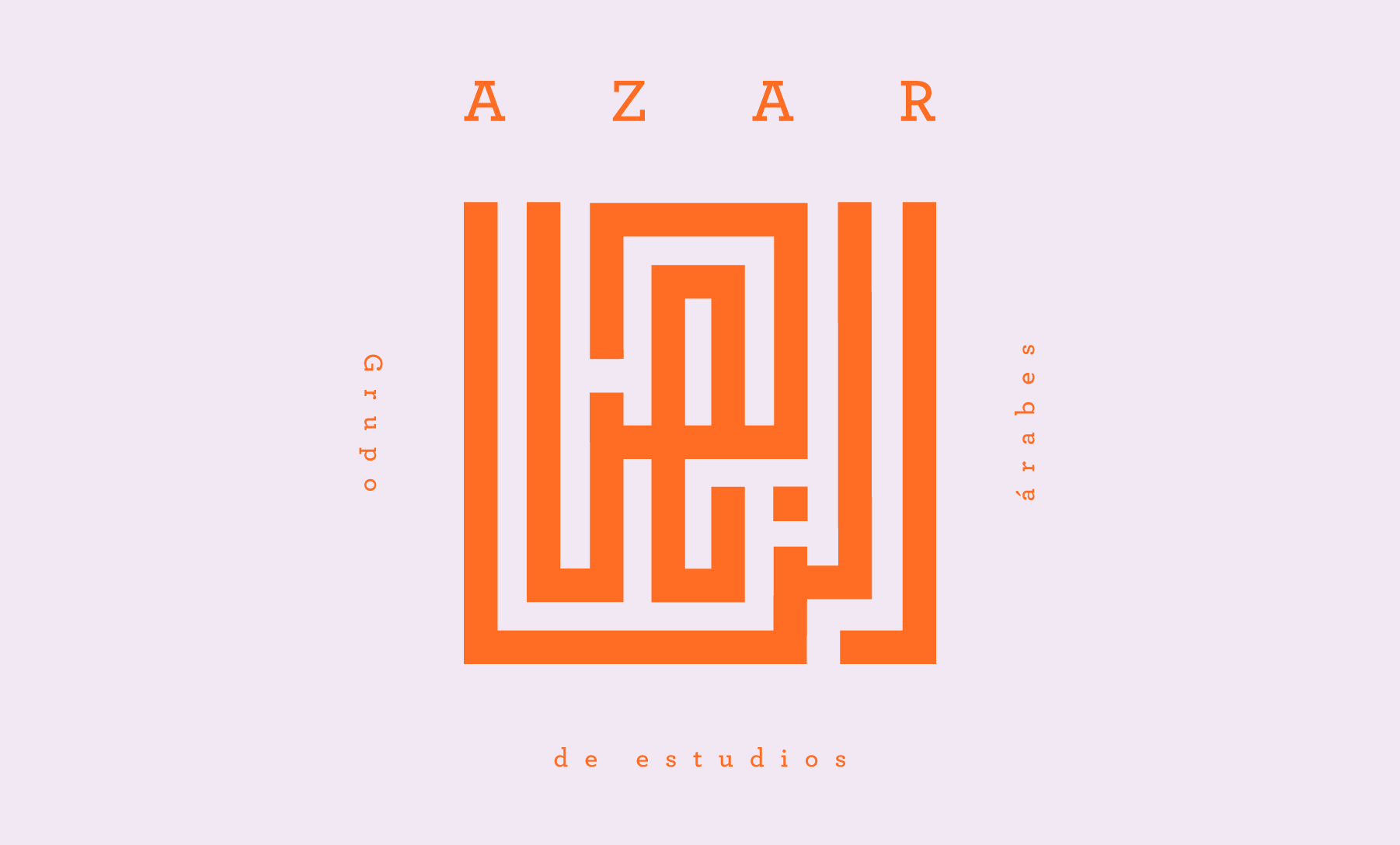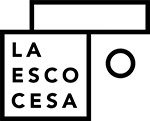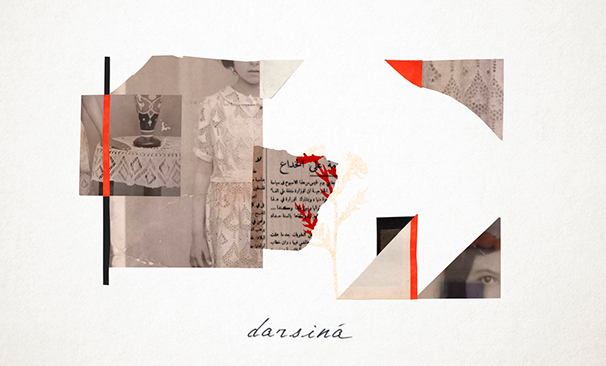What are you looking for?
You might be looking for...
Azar
Arab Studies Group
Activity free of charge with limited capacity to 55 people
Language: Spanish

Coordinated by the collective Darsinà (Sassouki Salma i Maha Ibraheem), resident at the Santa Mònica, AZAR is proposed as a space for exchange in relation to artistic, cultural and academic knowledge of Arab countries. It is offered to recognize the complexity and cultural richness and to strengthen a trans-Mediterranean link that deconstructs the orientalizing colonial gaze.
The program includes four sessions from May to July, taking place at La Escocesa and Santa Mònica. It will focus on topics related to Darsiná's research on the erasure of feminist and queer memory in colonial and postcolonial contexts, and the traumas engendered by the violence of these contexts. The sessions are open to the public and will take different formats depending on the invited speakers and their proposals.
A second part of the program, linked to the Santa Mònica exhibition series and in conjunction with La Escocesa, will be announced later.
Programa
AZAR 1 with Shada Safadi
During the first session there will be a presentation of Azar, the project, its programming and collaborations, as well as its development context and the Darsiná collective. The first guest to open the annual program is the Palestinian artist Shada Safadi, who will present her residency at La Escocesa and then, in talk format, her artistic work and career.
Language: Spanish and English
Place: La Escocesa
SATURDAY MAY 31, FROM 12PM TO 2PM
AZAR 2 with Henda Chennaoui
Henda Chennaoui proposes an interactive lecture that introduces Arab feminisms from the analysis of the specific contexts of the different countries of the region and the imperialism, global and common context that the region is facing.
Language: English
Place: La Escocesa
SATURDAY JUNE 7 FROM 12PM TO 2PM
AZAR 3 with Hanan Jasim Khammas
Saturday, June 21 from 12h to 14h, Santa Mònica - Lecture room
Hanan Jasim Khammas will present her research work, published in her book “Writing Through the Body: Iraqi Responses to the War on Terror”, and the importance of talking about bodies, with special attention to corporeality and sexuality, in the Iraqi context before and after the bloody US invasion of Iraq in 2003.
In her book, Hanan examines how the Iraqi literary field reacted to this invasion, which resulted in an unprecedented surge of fictional works about war and trauma. She also traces a genealogy of the Iraqi corpus to uncover the complexity of its historical and socio-political discourses, considering religious, social and political factors in three semiospheres: Iraqi society and culture before 2003, the discourse of the war on terror as semiotic interference, and contemporary Iraqi fiction as a result of the encounter between the two.
Language: Spanish
Place: Santa Mònica - Lecture room
*The intervention of Hanan Jasim Khammas will be online.
SATURDAY JUNE 21 FROM 12PM TO 2 PM
AZAR 4 with Itzea Goikolea-Amiano
Semha Bentata (1838-1906) was a Jewish woman from Tetouan, whose story sheds light on the early stages of the Spanish colonization of Morocco and the formation of the Tetouanese Jewish community in northwestern French Algeria.
This session will link fragments of Semha's story with methodological, historical and historiographical questions (and fictions); Semha's story encourages us to question the narrative of competition between women, of enmity between Maghrebi Jews and Muslims, as well as the very existence of an “Algerian Jewish community”, a fiction created by the French colonial power and reinforced by Zionist propaganda.
Language: Spanish
Place: La Escocesa
SATURDAY JULY 5, FROM 12PM TO 2 PM
Activity by the Darsinà Research Group.
AZAR is a project launched by La Escocesa in 2024 along with Raquel Álamo, this year continues its programming in collaboration with Santa Mònica and La Escocesa.
If you would like to receive more information about the Arab Studies Group’s activities and research, sign up for Darsinà's newsletter .
![]() Shada Safadi, born in 1982 in Majdal Shams, in the occupied Syrian Golan Heights, began her artistic career studying painting and printmaking at the Adham Ismail Institute in Damascus. Later, he graduated from the University of Damascus with a degree in Fine Arts. As a founding member of the Fateh Al Mudarris Center for Art and Culture, Safadi's talent was recognized with a third place in the A.M. Qattan Foundation's Young Artist of the Year Awards in 2008 for his “Fateh Al Mudarris” series. Qattan Foundation Young Artist of the Year Awards in 2008 for his series “In the Presence of the Crow”. His works have participated in several exhibitions in Syria, Palestine, Sweden and the UK. He participated in the Syrian Cultural Caravan, in which he exhibited his works throughout Europe.Shada Safadi is artist-in-residence at La Escocesa thanks to the TEJA network’s Emergency Residency Program 2025 for Artists and Cultural Workers in Palestine and the support of the Alserkal Arts Foundation and the Santa Mònica.
Shada Safadi, born in 1982 in Majdal Shams, in the occupied Syrian Golan Heights, began her artistic career studying painting and printmaking at the Adham Ismail Institute in Damascus. Later, he graduated from the University of Damascus with a degree in Fine Arts. As a founding member of the Fateh Al Mudarris Center for Art and Culture, Safadi's talent was recognized with a third place in the A.M. Qattan Foundation's Young Artist of the Year Awards in 2008 for his “Fateh Al Mudarris” series. Qattan Foundation Young Artist of the Year Awards in 2008 for his series “In the Presence of the Crow”. His works have participated in several exhibitions in Syria, Palestine, Sweden and the UK. He participated in the Syrian Cultural Caravan, in which he exhibited his works throughout Europe.Shada Safadi is artist-in-residence at La Escocesa thanks to the TEJA network’s Emergency Residency Program 2025 for Artists and Cultural Workers in Palestine and the support of the Alserkal Arts Foundation and the Santa Mònica.
Henda Chennaoui, a gender expert based in Tunis. She is a journalist and a sociology researcher. She has followed social movements for years and written about women rights and minorities. She is the founder and organizer of the first intersectional feminist school in Tunisia in honour of the activist Lina Ben Mhenni.
Hanan Jasim Khammas, postdoctoral researcher in Theory, Gender, Sexuality and the UNESCO Chair in Women, Development and Cultures, is a professor of Comparative Literature at the Universitat Autònoma de Barcelona and is part of the research project “Heterotopias in the imaginaries of relations between Spain and Morocco (AlterMagreb)” at the Universidad Autónoma de Madrid. Coordinator of the Master in Contemporary Arab Studies at the UAB. Her research focuses on body studies as a meeting point between Arab literature and American and European literatures and demonstrates how the body is a sign of epistemological violence during the war on terrorism. She is part of the CALITME group (Literary Cartographies of the Mediterranean) and was a member of the research projects Gender(s) and Language(s) in Contemporary Arabness and Construction of Identities, Gender and Artistic Creation in the Margins of Arabness. She also served on the editorial board of the Banipal journal of modern Arabic literature.
Itzea Goikolea-Amiano began studying Arabic language in the degree of Translation and Interpretation at the UAB, lived in Egypt for three years, returned to do a master's degree in gender studies at the UPV-EHU, and then went to Italy to do her doctorate in history at the IUE. In her thesis she delved into Spanish colonialism in Morocco, and a few months ago she published the book The Origins of Spanish Colonialism in Morocco, 1859-62: A Global Feminist Microhistory, which is being translated into Arabic. She also lived in London, where she did a postdoc at SOAS, and conducted research on the history of trans-Saharan slavery and the memory of it in contemporary Maghrebi literature. She has been living in Barcelona for five years, works as a Basque teacher at the Escuela Oficial de Idiomas de Drassanes, is attached to two research projects as an independent researcher and gives some talks on Arab and Islamic feminisms and other topics on which she has done research.


